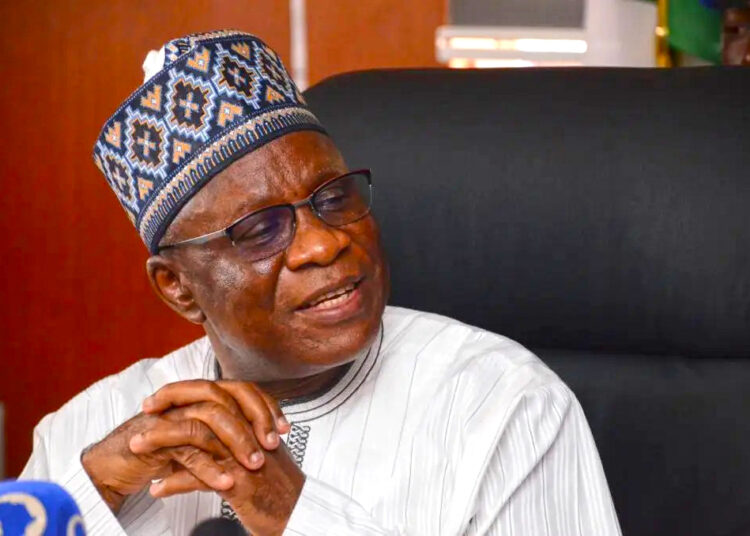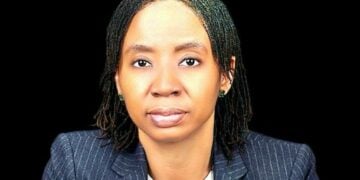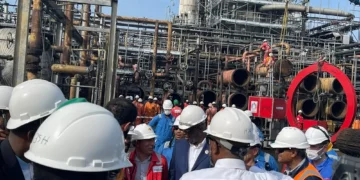Nigeria’s ministry of Regional Development has pledged to enhance regulatory frameworks and policy measures aimed at strengthening economic growth and revitalizing regions across the country.
At a three-day sectoral retreat in Lagos, minister of Regional Development, Engr. Abubakar Momoh, and minister of State for Regional Development, Uba Maigari Ahmadu, reaffirmed their commitment to fostering a structured approach to regional development.
The retreat, themed: ‘Improving Institutional Coordination for Better Development Results,’ convened six regional development commissions to improve institutional synergy, strengthen policy implementation, and promote strategic collaboration.
For years, Nigeria lacked a specific, well-formulated regional development policy framework, one that can propel the country towards economic emancipation and all-encompassing development.
This underscores the urgency and relevance of strengthening the synergy between the ministry of Regional Development and all the Regional Development Commissions, that is, the Niger Delta Development Commission(NEDC), the Northeast Development Commission(NEDC), Southeast Development Commission(SEDC), and Northwest Development Commission(NWDC) in addition to those that will soon been on-board.
Momoh emphasised the need for a legal framework to empower regional commissions, stating that their current reliance on federal decisions limits their autonomy. “The challenge we have in this current commission is that there is no legal framework for them to operate, The commissions themselves lack constitutional or legislative power to make decisions independently. They rely on directives from the federal level,” he said.
The minister drew parallels with countries such as China, Japan, and India, where regions plays a significant role in development. However, he acknowledged that not all models could be directly applied to Nigeria’s system.
Both ministers assured that efforts are underway to establish a structured policy framework that enhances the commissions’ ability to fulfill their mandates. “Development must be people-driven, measurable, and impactful. We envision a future where neglect and conflict are replaced by thriving communities, vibrant economies, and resilient institutions,” Momoh stated.
Ahmadu stressed the importance of strategic planning, noting that effective development requires proper coordination between the ministry and commissions. Every successful initiative requires proper planning. Our first step is to convene industry leaders, bureaucrats, and political appointees, including managing directors, board chairmen, and commission members to align our collective vision,” he said.
To ensure accountability, Ahmadu outlined mechanisms to monitor implementation efforts within the ministry. “We have a structure in place to oversee activities of the commissions,” he said. “Resources should not be wasted, we must ensure meaningful execution.”
On witnessing new project, Ahmadu started that the ministry will prioritize new projects where needed. He pointed to the Northwest Development Commission, which recently launched, saying officials would conduct a needs assessment tour to determine priority areas.
“For example, the Northeast Development Commission already has several ongoing projects,” he said. “This is not the time to waste resources—we will assess each region’s specific needs and match them with available resources,” he stressed.
One of the key projects under consideration is a 50-bed hospital for women and children, which Ahmadu said will serve as a model for similar healthcare initiatives across various commissions. But we also want to focus on completing existing projects so that they deliver real impact.”





